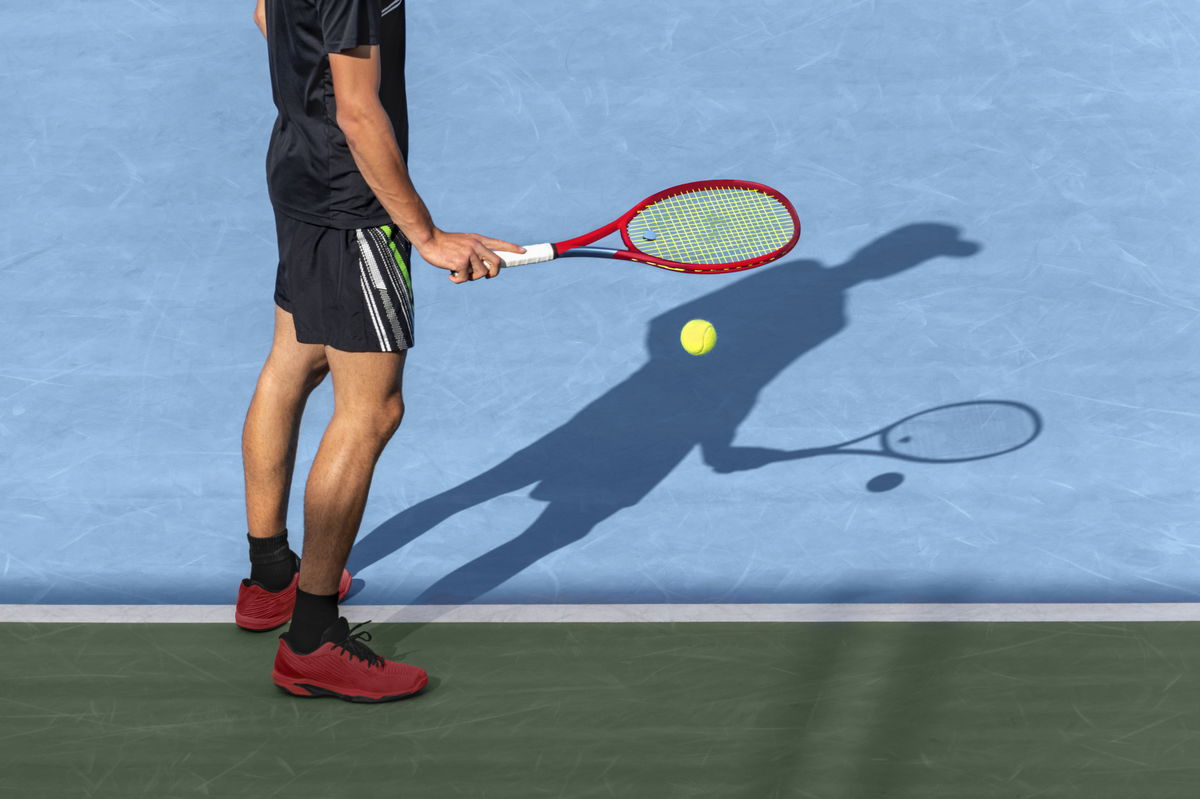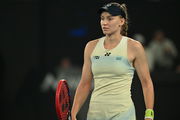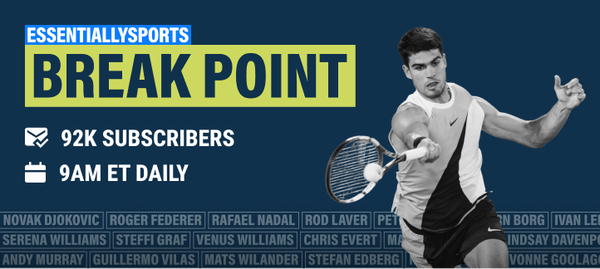

What’s tennis without a little drama? Professional players must follow strict rules on the circuit. These rules can change slightly from tournament to tournament but rarely in a drastic way. Racket smashes and aggressive behavior—like verbally abusing the crowd, opponent, or umpire—often lead to hefty fines. A positive test with the International Tennis Integrity Agency (ITIA) can even mean a ban. But this latest case might just take the cake!
Watch What’s Trending Now!
On Monday, the ITIA shook the tennis world with shocking news. Croatian player Lauro Milanovic and Uzbekistan’s Rakhimbek Ibrakhimov faced sanctions for breaking the Tennis Anti-Corruption Program (TACP). Milanovic, 32, received an eight-year suspension and a £7,400 ($10,000) fine for failing to cooperate with an investigation.
The controversy dates back to 2018. Milanovic allegedly placed 15 winning bets on a match involving a player he was closely linked to. The ITIA reopened the case in 2023 and interviewed him last year. Milanovic denied fixing results for betting gains but refused to hand over his phone for analysis. After ignoring the proposed sanction, the ban and fine kicked in on May 30, 2025, lasting until May 29, 2033—“subject to appeal.”
ADVERTISEMENT
Tennis players Rakhimbek Ibrakhimov and Lauro Milanovic have been sanctioned for breaches of the Tennis Anti-Corruption Program (TACP).
The Court of Arbitration for Sport has dismissed an appeal from Argentinian tennis player Melina Ferrero against a three-year TACP suspension.
— International Tennis Integrity Agency (@itia_tennis) July 14, 2025
This ban bars Milanovic from playing or attending any tennis events under ITIA’s jurisdiction, including ATP, WTA, ITF, Wimbledon, and national federations. For a player mostly on regional circuits, this is a career-ending blow unless his appeal changes things. Meanwhile, Ibrakhimov got a 21-month suspension for similar violations, proving the ITIA is serious about enforcement.
The message is clear: rules must be followed, and violations have serious consequences. While Milanovic’s ban draws attention, he is not alone. Younes Rachidi holds the longest suspension in professional tennis history with a lifetime ban for 135 match-fixing offenses, the highest ever recorded. Daniel Koellerer received the first lifetime ban in 2011 for match-fixing attempts. More recently, Agustin Moyano was banned for 15 years in early 2025 due to involvement with a Belgian match-fixing syndicate, marking one of the longest suspensions short of a lifetime ban.
ADVERTISEMENT
Additionally, while the Croatian received a lengthy ban. With the closure of Wimbledon, the tournament has seen many fines and penalties this year, especially with one player topping the list!
ADVERTISEMENT
Tennis pro at Wimbledon receives the highest Wimbledon fine!
On July 6, an X user highlighted the current leaderboard of Wimbledon fines: “British doubles player Henry Patten tops the fines list so far at @Wimbledon with a $12,500 fine for verbal abuse. Adrian Mannarino was second-highest at $6,000 for unsportsmanlike conduct.” While the exact circumstances behind Patten’s fine remain undisclosed, there’s no denying he’s been one of the tournament’s standout performers this year.
Patten, 28, alongside his Finnish partner Harri Heliovaara, entered Wimbledon as the defending men’s doubles champions. Their July 4 victory not only secured their title defense but also catapulted Patten’s ranking from 69th to 14th—he previously reached a career peak of 12 last August. With four titles in the past year, these two have firmly established themselves among the elite in doubles tennis, even if they recently fell short in the ATP Tour finals semifinals in Italy.
Top Stories
Which Celebrities Will Attend Alcaraz vs Djokovic at the Australian Open 2026 Final? Rafael Nadal, Margaret Court, Mark Webber & More

Who Is Novak Djokovic’s Wife and Kids? All About 24-Time Grand Slam Champion’s Family

Who Is John Blom? Meet Chair Umpire for Novak Djokovic vs Carlos Alcaraz at Australian Open 2026 Men’s Final

Who Is Sitting Beside Rafael Nadal at the Australian Open 2026 Final? All About His Agent Carlos Costa

Elena Rybakina’s Coach Slammed as Australian Open Final Tension Boils Over: “So Gross”

Despite Patten’s hefty fine, the roster of players penalized at SW19 isn’t as extensive as one might expect. Yet, it features some prominent names. Serena Williams, for instance, was fined twice £7.9k ($10k) — once in 2016 for smashing rackets and again in 2019 for damaging the grass during practice. Britain’s Heather Watson also faced a significant £9.5k ($12k) fine in 2016 for similar turf damage, proving that Wimbledon’s pristine courts come with strict consequences.
ADVERTISEMENT
Then there’s Nick Kyrgios, tennis’s perennial provocateur. At Wimbledon 2019, he amassed $11,500 in fines: $3,000 for unsportsmanlike conduct against Jordan Thompson and another $5,000 after a fiery exchange with umpire Damien Dumusois over Rafael Nadal’s slow play, despite the 25-second rule.
Now with this latest spate of fines and bans, perhaps players will reconsider their conduct on court. What’s your take? Share your thoughts in the comments below!
ADVERTISEMENT
ADVERTISEMENT
ADVERTISEMENT
